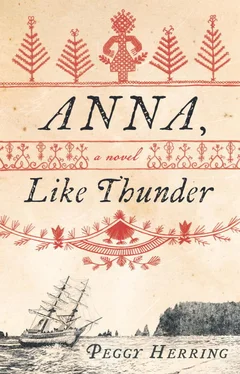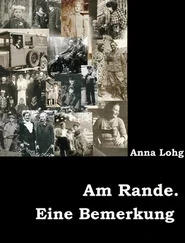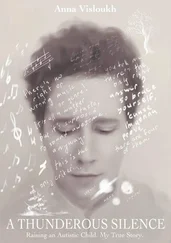“What did you do?” Sobachnikov says, in awe.
“What could I do?” Timofei Osipovich laughs. “I made a kite.”
The men around the fire shift, but no one laughs with him. No one wants to miss his next words.
“I found two sticks about this long.” He shows us with his hands. “I lashed them together with a piece of kelp that was there on the beach beside my baidarka. I attached a piece of paper to it. And when I was finished, I held it up to show them.
“No one spoke. I tied some thin rope to it, and threw it into the air.”
He makes a motion like he’s throwing something into the wind. Old Yakov flinches.
“At that moment, I realized I might have misjudged and placed myself in even greater peril. The koliuzhi leapt back in fear. The wind caught the kite. They raised their swords and spears. Some pointed them at me and others at the kite. I thought I was about to breathe my last.
“But then—as I released more of the rope—they lowered their weapons. They began to smile. One laughed. Then others joined in. As they watched the kite climb, they rejoiced. And by the time it reached its full height,” he pauses long and hard and swivels his head around the fireside, meeting the eye of each and every person here, “we were best friends. All of us.
“‘You Russians are clever people,’ they said over and over again. ‘Surely you can reach the sun.’ ‘Oh no,’ I said to them, ‘no one can do that.’ ‘But you are so intelligent. Is Russia full of geniuses like you?’ ‘You flatter me much, and I thank you for such consideration, but no. I assure you I am a very ordinary man.’
“So remember: if you find yourself in terrible trouble with the koliuzhi, with nowhere to turn, find a distraction. They’re such little children at heart, all of them, and very easily amused. In this part of the world, that may be the only thing that will save you from the hungry jaws of death.” He slaps his knee. “There’s a tale for you and crock of butter for me.”
They laugh. And laugh, and laugh—that familiar line from the old tales, how often I’d heard my own mother append it to her stories. The men closest to him smack him on the back and nudge him with their shoulders. Even Nikolai Isaakovich laughs.
But why? His story is not rational. Right from the beginning—why would the Tsar trust a serf with a secret mission? And why would he be out on the stormy sea by himself? He’s tough as an old piece of dried meat; still, he wouldn’t be so foolish as to venture out into the open ocean by himself.
Does an island such as he describes exist? Does anybody live there? From where would he get paper? How could he speak so fluently the language of a people he’s never seen before—and who, it must be presumed, if they’re that forsaken, couldn’t have learned Russian? When you think about it, his story is like a quilt coming apart at the seams because the seamstress hadn’t thought beyond the basting.
Yet the others are charmed. Tomorrow, they’ll heed and follow him. They’ll think fashioning a kite is going to save their lives. Kotelnikov is sharp; so is the American. Can’t they see through his embellishments? Doesn’t anybody understand that he’s treating us like we’re children? He has such high regard for himself, and so little regard for us and the truth.
When the men have finally tucked away their flasks, we settle in for the night. I wait, cold and achy, for sleep to overtake me. But then somebody calls out in his sleep, and I’m wide awake again. Eventually, I feel myself drifting off. I’m once more ready to fall deep into slumber. But somebody rolls over and bumps the tent and the walls shiver. I awaken again. How I wish I were a little girl, my mother with me, holding my hand until my restlessness leaves me. This goes on all night, so that when I wake in the morning for good, I don’t feel restored.
We’re a ragged troupe carrying our bundles and our hopeless spirits. I don’t know which is heavier. Early this morning, as we packed up, everything damp from the mist, my husband announced we’d head back to the seashore and walk along the beach for the day. So, as we set off, we turn toward the coast and after only a half hour or so, we break through the forest’s edge and see the water.
The ocean is calmer today than it was yesterday. It’s dark grey and, even though it’s placid, the water still rushes up along the beach and floods back out again. The sky remains overcast, though the clouds are high and light, and so there’s no rain. My husband orders a brief rest. Timofei Osipovich and his devoted Ovchinnikov clean their muskets. Maria and Yakov enter into a brief discussion that ends with them redistributing the contents of their bundles.
I look for a place where I can wash my hands and face. I locate a small pool on a rocky outcropping at the edge of the beach. A purple sea star droops its arms over a rock in one corner, and I take it as a sign of welcome.
When I put my hand into the water, the pool comes alive. Small fish dart away. Tiny snail shells quiver and then totter off as though they have legs. Things I thought were rocks or seaweed begin to wave their arms and curl into tight little balls. I pull my hand out and wait. The creatures grow still. Then, I dip only my fingertips in. I rub them around my eyes, across my cheeks, and over my lips. When I wash off the layer of mud and dirt, I feel a little less tired.
I loosen my hair and let it fall. I try to run my fingers through it, but it’s choked with knots and tangled with leaves and twigs. When our ordeal is over, I may have to cut it. If the sacrifice of my hair would end our suffering today, I’d gladly make it.
“Madame Bulygina—we’re leaving! Hurry!” Maria calls. The men have risen and shouldered their burdens. My husband has already turned and set out along the sand. I finish tying up my hair again. I’m the last to join the procession. There’s a gap between me and the last man. After a moment, Timofei Osipovich steps aside. He waits and, after I pass, he rejoins the line, walking right behind me. His musket rests on one shoulder.
“That’s a big load you carry, Madame Bulygina.” Mine is less than half the size of his. He must be mocking.
“I can manage,” I say. “Like everyone else.”
“You could manage better if you fastened your cloak properly.”
“I prefer to do it my way.” My words sound childish, and I redden.
He laughs and says nothing more.
Out at sea, a bed of kelp rises and falls with the waves. Gulls float nearby, unperturbed by our presence.
Once more, my shoes fill with sand. It becomes harder and harder to walk. My one hand holds my bundle, the other holds my cape closed. I wonder about my shawl pin. Whatever happened to it? How I long to have it right now.
We follow the shore until we reach a rocky headland. On the side closest to the forest, it’s navigable. I scramble over the rocks, following the others, Timofei Osipovich just behind me. “There’s a passage to your right,” he advises. “See where it flattens? You can put your foot just there.”
It annoys me that he’s right. I’m eighteen and capable of finding my own way across the rocks. I don’t need anybody’s help, especially not his.
On the other side of the headland, the sand on the beach is replaced by loose pebbles, even more difficult to walk on. Each step forward requires two steps of effort. I fall farther behind. I wish I could run like Zhuchka who appears and disappears at will, moving easily over the little stones. How much time would she need to spend here before she became as wild as the wolves? Not long I suspect.
Читать дальше













